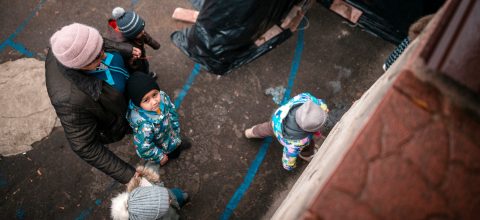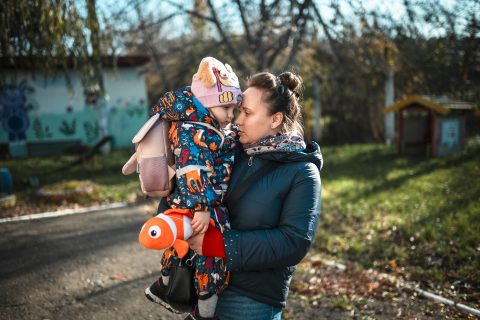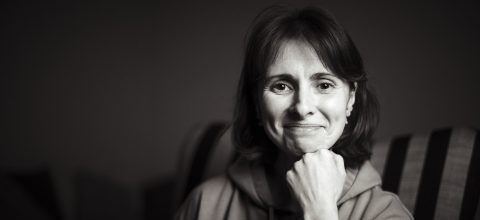In war, children are sources of worry and hope
In the midst of war in Ukraine, parents and kindergarten teachers find a moment of peace and a deeper purpose amongst children.
Text: Erik Nyström
Photos: Antti Yrjönen
“IT FEELS LIKE we’re at a graduation party. We’re nervous but happy,” says Nataliya Hodun with a big smile.
Her four-year-old daughter Anna takes off her outerwear and runs to dig through the toy boxes. Finn Church Aid (FCA) has delivered games and toys to the daycare.
Three-year-old Polina squeezes her stuffed fish Nemo thoughtfully. The other children last saw each other at the daycare centre more than four months ago. Since then, daycare activities have been organised only via smartphone. Polina started at the daycare remotely and this is her first time face-to-face. She looks at Anna and a dozen other children who are currently playing.
The Petrivka kindergarten is a few hours’ drive from the port city of Odessa. FCA is renovating the kindergarten’s bomb shelter so that operations in the building can continue as normal, as part of a major school renovation project funded by Education Cannot Wait. In the meantime, children can go to the bomb shelter of a nearby school if necessary.
According to Nataliya, remote work has also been good. The daycare staff produces daily videos with tasks and games for the children, which the children enjoy watching.
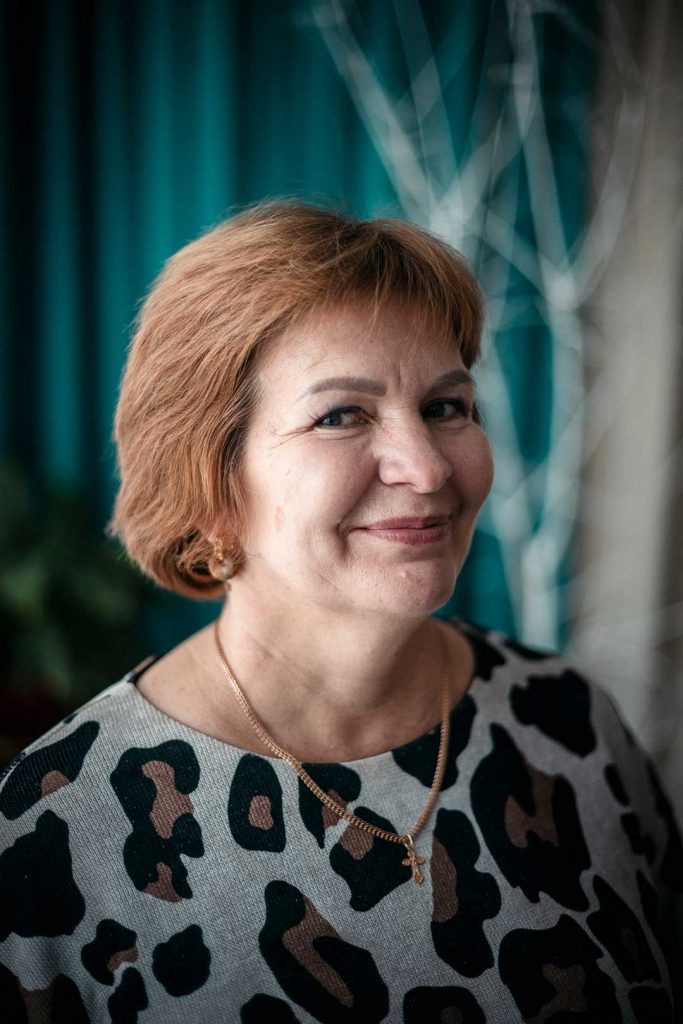
“But working with parents is not the same as working together with teachers and other children,” says Hodun.
THERE HAS BEEN no good news about the war since Ukraine regained some of the territories occupied by Russia in the first year. With no hope for better times, parents and teachers are finding meaning in everything they can do for children and young people.
The profession of kindergarten teacher is a calling whose importance has been further emphasised during the war. The dedication to the task is evident in kindergartens across Ukraine. Staff have often worked in the same kindergarten for decades.
Nataliia Chulyk has worked for 33 years, and has spent practically her entire life, at a kindergarten in the town of Podilsk, a few hours’ drive from Odessa. Chulyk fondly recounts how her best friend at the kindergarten later became her husband. This is one of the reasons why she considers the kindergarten to be one big family and runs it conscientiously.
“This kindergarten is my life. I’m constantly thinking about how it could be more comfortable here,” she says.
The children’s parents are strongly involved in the activities. The bomb shelter was established at the beginning of the war, and the children, staff and parents celebrate holidays and birthdays together. It not only creates a sense of security for the children, but also gives adults a break from the gloom of war and the flood of news.
“We all experience a deep sense of meaning: we can influence the well-being of children,” says Chulyk.
IN PETRIVKA, not even an hour has passed since the children’s reunion when a familiar siren sounds from the adults’ mobile phones. Games are cancelled, and the adults calmly dress the children to take them to safety during the air raid warning.
When everyone gets out into the yard, the warning is cancelled. This is how people have to run back and forth these days, Hodun explains, letting Anna hurry towards the kindergarten slide.
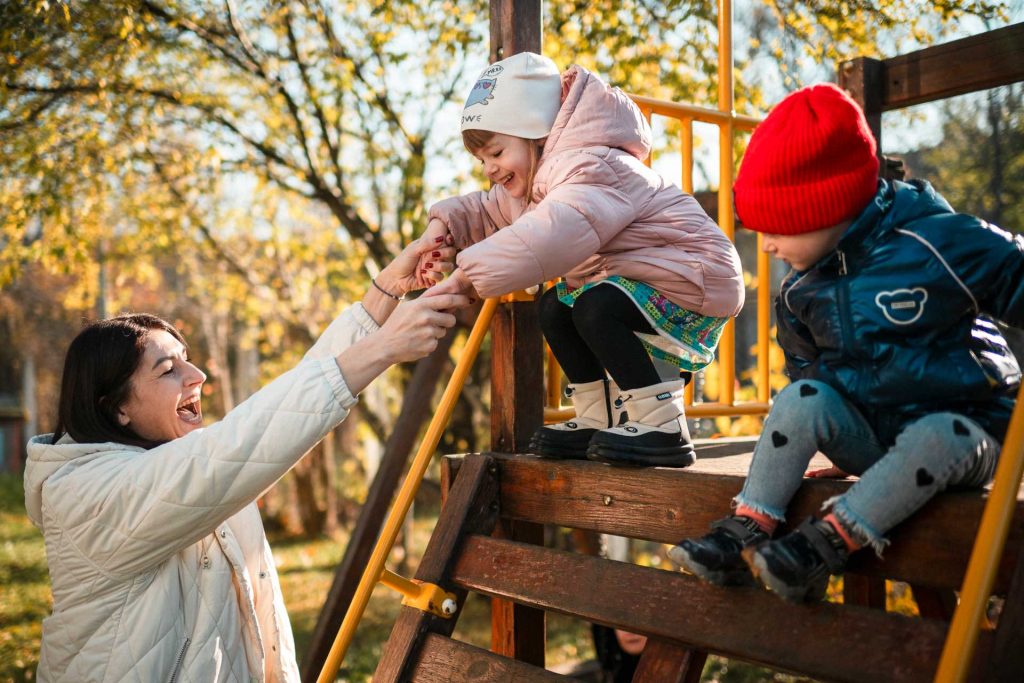
Unfortunately, the children show signs of three years of war. Hodun says that the family lives near the railway. When trains rumble past, Anna often asks if it was the rumble of a missile.
“This week, Anna’s games focused on a yellow house that was hit by a rocket. She had seen the news about it. The children process what they hear in their games,” Hodun says.
Outside, Polina follows Anna and the other children. They play for a while before Polina’s mother, Marina Jantshukova, picks her up to eat.
I ask if Polina will come here again. She nods shyly and whispers in her mother’s ear.
“She was delighted that there are so many more toys here than at home,” says Marina.
—
